Стихи - [60]
It will be a neighbour coming to hear about Michael's wedding. Can you see who it is?
PATRICK. I think it is a stranger, but she's not coming to the house. She's turned into the gap that goes down where Murteen and his sons are shearing sheep. [He turns towards BRIDGET.] Do you remember what Winny of the Cross Roads was saying the other night about the strange woman that goes through the country whatever time there's war or trouble coming?
BRIDGET. Don't be bothering us about Winny's talk, but go and open the door for your brother. I hear him coming up the path.
PETER. I hope he has brought Delia's fortune with him safe, for fear her people might go back on the bargain and I after making it. Trouble enough I had making it.
[PATRICK opens the door and MICHAEL comes in.]
BRIDGET. What kept you, Michael? We were looking out for you this long time.
MICHAEL. I went round by the priest's house to bid him be ready to marry us to-morrow.
BRIDGET. Did he say anything?
MICHAEL. He said it was a very nice match, and that he was never better pleased to marry any two in his parish than myself and Delia Cahel.
PETER. Have you got the fortune, Michael?
MICHAEL. Here it is.
[He puts bag on table and goes over and leans against the chimney-jamb. BRIDGET, who has been all this time examining the clothes, pulling the seams and trying the lining of the pockets, etc., puts the clothes on the dresser.]
PETER [getting up and taking the bag in his hand and turning out the money]. Yes, I made the bargain well for you, Michael. Old John Cahel would sooner have kept a share of this awhile longer. "Let me keep the half of it till the first boy is born," says he. "You will not," says I. "Whether there is or is not a boy, the whole hundred pounds must be in Michael's hands before he brings your daughter in the house." The wife spoke to him then, and he gave in at the end.
BRIDGET. You seem well pleased to be handling the money, Peter.
PETER. Indeed, I wish I had had the luck to get a hundred pounds, or twenty pounds itself, with the wife I married.
BRIDGET. Well, if I didn't bring much I didn't get much. What had you the day I married you but a flock of hens and you feeding them, and a few lambs and you driving them to the market at Ballina? [She is vexed and bangs a jug on the dresser.] If I brought no fortune, I worked it out in my bones, laying down the baby, Michael that is standing there now, on a stook of straw, while I dug the potatoes, and never asking big dresses or anything but to be working.
PETER. That is true, indeed. [He pats her arm.]
BRIDGET. Leave me alone now till I ready the house for the woman that is to come into it.
PETER. You are the best woman in Ireland, but money is good, too. [He begins handling the money again and sits down.] I never thought to see so much money within my four walls. We can do great things now we have it. We can take the ten acres of land we have a chance of since Jamsie Dempsey died, and stock it. We will go to the fair of Ballina to buy the stock. Did Delia ask any of the money for her own use, Michael?
MICHAEL. She did not, indeed. She did not seem to take much notice of it, or to look at it at all.
BRIDGET. That's no wonder. Why would she look at it when she had yourself to look at, a fine, strong young man? It is proud she must be to get you, a good steady boy that will make use of the money, and not be running through it or spending it on drink like another.
PETER. It's likely Michael himself was not thinking much of the fortune either, but of what sort the girl was to look at.
MICHAEL [coming over towards the table]. Well, you would like a nice comely girl to be beside you, and to go walking with you. The fortune only lasts for a while, but the woman will be there always.
[Cheers.]
PATRICK [turning round from the window]. They are cheering again down in the town. Maybe they are landing horses from Enniscrone. They do be cheering when the horses take the water well.
MICHAEL. There are no horses in it. Where would they be going and no fair at hand? Go down to the town, Patrick, and see what is going on.
PATRICK [opens the door to go out, but stops for a moment on the threshold]. Will Delia remember, do you think, to bring the greyhound pup she promised me when she would be coming to the house?
MICHAEL. She will surely.
[PATRICK goes out, leaving the door open.]
PETER. It will be Patrick's turn next to be looking for a fortune, but he won't find it so easy to get it and he with no place of his own.
BRIDGET. I do be thinking sometimes, now things are going so well with us, and the Cahels such a good back to us in the district, and Delia's own uncle a priest, we might be put in the way of making Patrick a priest some day, and he so good at his books.
PETER. Time enough, time enough; you have always your head full of plans, Bridget.
BRIDGET. We will be well able to give him learning, and not to send him trampling the country like a poor scholar that lives on charity.
[Cheers.]
MICHAEL. They're not done cheering yet.
[He goes over to the door and stands there for a moment, putting up his hand to shade his eyes.]

В книге рассказывается история главного героя, который сталкивается с различными проблемами и препятствиями на протяжении всего своего путешествия. По пути он встречает множество второстепенных персонажей, которые играют важные роли в истории. Благодаря опыту главного героя книга исследует такие темы, как любовь, потеря, надежда и стойкость. По мере того, как главный герой преодолевает свои трудности, он усваивает ценные уроки жизни и растет как личность.
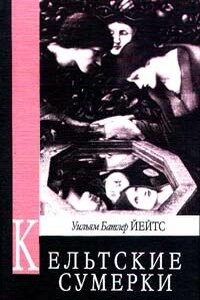
Уильям Батлер Йейтс (1865–1939) — классик ирландской и английской литературы ХХ века. Впервые выходящий на русском языке том прозы "Кельтские сумерки" включает в себя самое значительное, написанное выдающимся писателем. Издание снабжено подробным культурологическим комментарием и фундаментальной статьей Вадима Михайлина, исследователя современной английской литературы, переводчика и комментатора четырехтомного "Александрийского квартета" Лоренса Даррелла (ИНАПРЕСС 1996 — 97). "Кельтские сумерки" не только собрание увлекательной прозы, но и путеводитель по ирландской истории и мифологии, которые вдохновляли У.
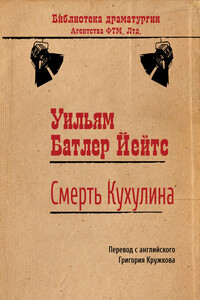
Пьеса повествует о смерти одного из главных героев ирландского эпоса. Сюжет подан, как представление внутри представления. Действие, разворачивающееся в эпоху героев, оказывается обрамлено двумя сценами из современности: стариком, выходящим на сцену в самом начале и дающим наставления по работе со зрительным залом, и уличной труппой из двух музыкантов и певицы, которая воспевает героев ирландского прошлого и сравнивает их с людьми этого, дряхлого века. Пьеса, завершающая цикл посвящённый Кухулину, пронизана тоской по мифологическому прошлому, жившему по другим законам, но бывшему прекрасным не в пример настоящему.
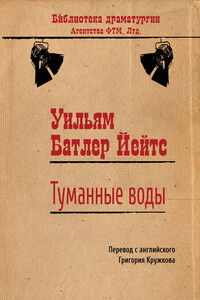
Эта пьеса погружает нас в атмосферу ирландской мистики. Капитан пиратского корабля Форгэл обладает волшебной арфой, способной погружать людей в грезы и заставлять видеть мир по-другому. Матросы довольны своим капитаном до тех пор, пока всё происходит в соответствии с обычными пиратскими чаяниями – грабёж, женщины и тому подобное. Но Форгэл преследует другие цели. Он хочет найти вечную, высшую, мистическую любовь, которой он не видел на земле. Этот центральный образ, не то одержимого, не то гения, возвышающегося над людьми, пугающего их, но ведущего за собой – оставляет широкое пространство для толкования и заставляет переосмыслить некоторые вещи.
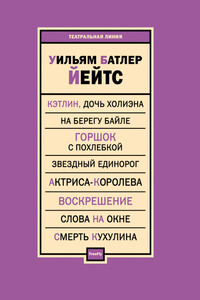
Уильям Батлер Йейтс (1865–1939) – великий поэт, прозаик и драматург, лауреат Нобелевской премии, отец английского модернизма и его оппонент – называл свое творчество «трагическим», видя его основой «конфликт» и «войну противоположностей», «водоворот горечи» или «жизнь». Пьесы Йейтса зачастую напоминают драмы Блока и Гумилева. Но для русских символистов миф и история были, скорее, материалом для переосмысления и художественной игры, а для Йейтса – вечно живым источником изначального жизненного трагизма.
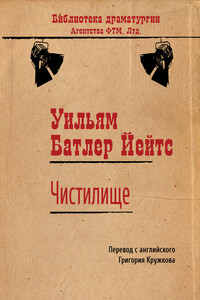
Старик и юноша останавливаются у разрушенного дома. Выясняется, что это отец и сын, а дом когда-то принадлежал матери старика, которая происходила из добропорядочной семьи. Она умерла при родах, а муж её, негодяй и пьяница, был убит, причём убит своим сыном, предстающим перед нами уже стариком. Его мучают воспоминания, образ матери возникает в доме. Всем этим он делится с юношей и поначалу не замечает, как тот пытается убежать с их деньгами. Но между ними начинается драка и Старик убивает своего сына тем же ножом, которым некогда убил и своего отца, завершая некий круг мучающих его воспоминаний и пресекая в сыне то, что было страшного в его отце.